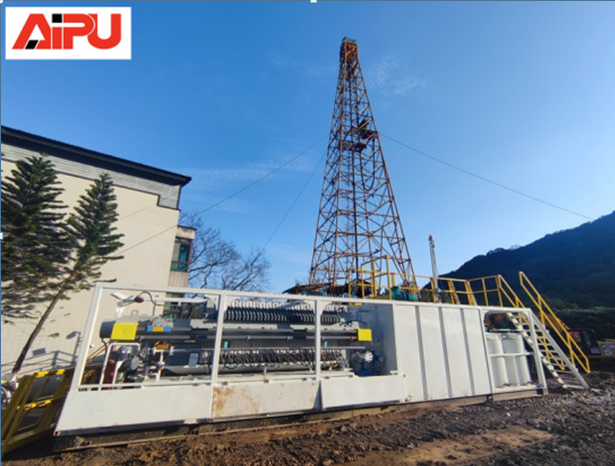Effective Tools for Clean Drilling Fluids
Drilling operations have long been associated with significant environmental challenges. However, solids control equipment plays a crucial role in minimizing these impacts. This article explores how such equipment helps in reducing the environmental footprint of drilling activities.
Waste Reduction
One of the primary ways solids control equipment minimizes environmental impact is by reducing waste generation. During drilling, large amounts of cuttings and other solid particles are produced. Solids control systems, such as shale shakers, hydrocyclones, and centrifuges, are designed to separate these solids from the drilling fluid. By efficiently removing the solids, the volume of waste that needs to be disposed of is significantly reduced. This not only saves on disposal costs but also decreases the amount of waste that could potentially contaminate the environment.
Fluid Recycling
Another important aspect is fluid recycling. Drilling fluid, also known as mud, is a vital component in drilling operations. Solids control equipment enables the recycling of this fluid by removing the unwanted solids. Once the solids are separated, the clean drilling fluid can be reused in subsequent drilling processes. This reduces the need for fresh water and chemicals, which are often used in the preparation of new drilling fluid. As a result, the consumption of natural resources is minimized, and the environmental impact associated with the extraction and processing of these resources is also reduced.
Preventing Soil and Water Contamination
Solids control equipment helps prevent soil and water contamination. If the solid cuttings and other contaminants are not properly removed from the drilling fluid, they can be discharged into the surrounding environment. This can lead to soil pollution, which can affect the fertility of the land and harm local ecosystems. Additionally, the contaminated fluid can seep into groundwater or surface water sources, posing a threat to drinking water supplies and aquatic life. By effectively separating the solids, solids control equipment ensures that the drilling fluid remains clean and does not cause contamination.
Air Quality Improvement
Finally, solids control equipment contributes to air quality improvement. When drilling waste is not properly managed, it can release harmful volatile organic compounds (VOCs) and other pollutants into the air. These pollutants can have a negative impact on air quality and human health. By reducing the volume of waste and ensuring proper disposal, solids control equipment helps minimize the release of these pollutants. Additionally, some advanced solids control systems are designed to capture and treat the emissions, further reducing the environmental impact on the air.
In conclusion, solids control equipment is an essential tool in minimizing the environmental impact of drilling operations. Through waste reduction, fluid recycling, prevention of soil and water contamination, and air quality improvement, this equipment helps make drilling activities more sustainable and environmentally friendly.

Waste Reduction
One of the primary ways solids control equipment minimizes environmental impact is by reducing waste generation. During drilling, large amounts of cuttings and other solid particles are produced. Solids control systems, such as shale shakers, hydrocyclones, and centrifuges, are designed to separate these solids from the drilling fluid. By efficiently removing the solids, the volume of waste that needs to be disposed of is significantly reduced. This not only saves on disposal costs but also decreases the amount of waste that could potentially contaminate the environment.
Fluid Recycling
Another important aspect is fluid recycling. Drilling fluid, also known as mud, is a vital component in drilling operations. Solids control equipment enables the recycling of this fluid by removing the unwanted solids. Once the solids are separated, the clean drilling fluid can be reused in subsequent drilling processes. This reduces the need for fresh water and chemicals, which are often used in the preparation of new drilling fluid. As a result, the consumption of natural resources is minimized, and the environmental impact associated with the extraction and processing of these resources is also reduced.
Preventing Soil and Water Contamination
Solids control equipment helps prevent soil and water contamination. If the solid cuttings and other contaminants are not properly removed from the drilling fluid, they can be discharged into the surrounding environment. This can lead to soil pollution, which can affect the fertility of the land and harm local ecosystems. Additionally, the contaminated fluid can seep into groundwater or surface water sources, posing a threat to drinking water supplies and aquatic life. By effectively separating the solids, solids control equipment ensures that the drilling fluid remains clean and does not cause contamination.
Air Quality Improvement
Finally, solids control equipment contributes to air quality improvement. When drilling waste is not properly managed, it can release harmful volatile organic compounds (VOCs) and other pollutants into the air. These pollutants can have a negative impact on air quality and human health. By reducing the volume of waste and ensuring proper disposal, solids control equipment helps minimize the release of these pollutants. Additionally, some advanced solids control systems are designed to capture and treat the emissions, further reducing the environmental impact on the air.
In conclusion, solids control equipment is an essential tool in minimizing the environmental impact of drilling operations. Through waste reduction, fluid recycling, prevention of soil and water contamination, and air quality improvement, this equipment helps make drilling activities more sustainable and environmentally friendly.








